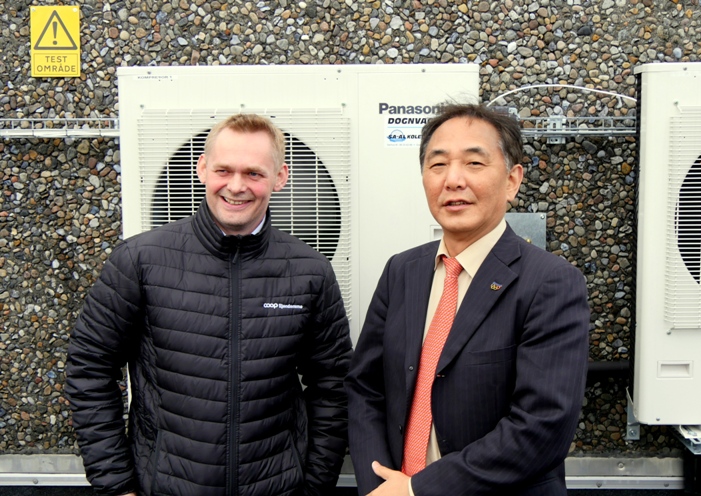Latest News
- Plant based milk manufacturer turns to Panasonic for its sustainable refrigeration solution 19/11/2024 ReRooted, a manufacturer of organic and ethically sourced plant based dairy-alternative milk, instal... Read more
- Welsh Barn Conversion Warmed with Panasonic Heat Pump 18/11/2024 A stone-built property in rural Wales has been installed with a Panasonic Aquarea T-CAP J Series 9kW... Read more
- Historically listed thatched property benefits from government scheme for Panasonic heat pump 18/10/2024 Panasonic has delivered a sustainable and affordable heating solution to a pre-1900’s historically... Read more
- Panasonic to Showcase Sustainable Heat Pumps at ‘Hear, See and Feel a Heat Pump’ Event outside Parliament 11/10/2024 Panasonic will be showcasing its sustainable and energy efficient Air-to-Water Heat pumps, at an eve... Read more
- Dunstaple Farm Ltd Becomes First to Use Panasonic’s 20HP Sustainable Cold Chain Condensing Unit Outside of Japan 10/10/2024 Dunstaple Farm Ltd, home of the award-winning Farmer Tom’s Ice Cream, has turned to Panasonic, loo... Read more
- Panasonic Highlights New Product Innovations and Major Initiatives at Chillventa 2024 10/10/2024 This week, at Chillventa 2024, Panasonic Heating & Cooling Solutions made several significant announ... Read more
- More Panasonic News
First Panasonic CO2-Cooling Project in Europe
29/04/2016
The new HFC-free cooling and freezing units from Panasonic are helping Danish companies meet forthcoming environmental requirements from the EU. Instead of using greenhouse gases as a refrigerant these units use the natural and greener CO2 refrigerant.
Panasonic's new cooling units are designed for smaller installations such as gas stations, supermarkets and bakeries which use freezers and refrigeration to cool food. The units use the refrigerant CO2, a naturally occurring substance that is much kinder to the environment than other refrigerants using artificially produced synthetic greenhouse gases.
New EU environmental requirements
The EU has set a new objective to reduce greenhouse emissions by 21 per cent by 2030, compared to the average emissions in the period from 2009 to 2012. That doesn’t mean that it will be prohibited to install devices using a high GWP refrigerant, but it gives manufacturers and consumers an extra incentive to choose environmentally friendly alternatives. However, some products will be banned if they have a GWP-value higher than the permitted level.
20 per cent more energy efficient
Panasonic’s cooling and freezing units are available from 1.6 kW to 14.6 kW in freezing operation. They are 20 per cent more energy efficient than other products with the conventional refrigerant R404A, which is partly due to the unique 2-stage compressor. In addition, the units are quiet and lightweight; Panasonic’s 3.55 kW cooling capacity unit weighs just 67 kg, which is one of the lightest on the market within this category.
Panasonic focuses on CO2
Panasonic Heating and Cooling has just launched a CO2 cooling test project at the COOP grocery store in the Danish town of Randers. It is the first Panasonic CO2-system in Europe, and the market for this type of cooling unit is estimated to grow rapidly in this region. In 2009, Panasonic was the first company in the industry to begin verification testing of CO2 refrigerant devices in Japan, and has since released four different models in Japan from 2010 up to the present day.
Five facts about the CO2 condensing unit:
• The units are available as refrigerator and freezer, from small coolers to small freezer stores.
• The line ranges from 1.6 kW to 14,6 kW rated output.
• Evaporation temperatures from -5 to -45 degrees C.
• Unique CO2 solution, with a GWP of 1.
• The units can be set to both positive and negative cooling.
Panasonic continues to develop more sustainable and environmentally friendly products, and will support the green transition in Europe with further investment into CO2 technologies. The goal is to take the lead in promoting natural refrigerants and contributions to the environment in the food industry globally. 










































